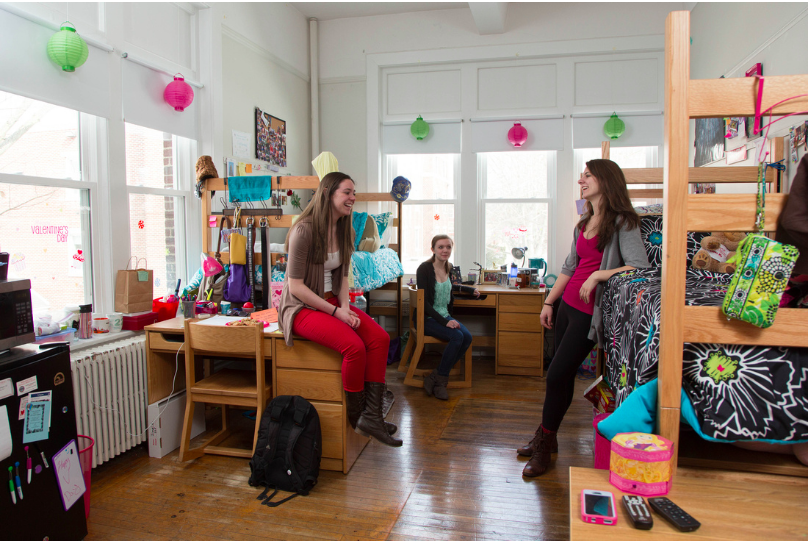At the beginning of the semester, students were emailed a survey seeking their input, both quantitatively and qualitatively, regarding whether or not Brown Hall, the sole female-only residence hall on campus, would expand to becoming co-ed. Upon analyzing the results of the survey, it has been determined that Brown Hall will not convert to co-ed, and will continue to be all-female for the 2019-2020 academic year.
The survey was initially emailed to students by Dean Gulati on Sept. 24. The survey was introduced in the email as stating that “Muhlenberg College periodically evaluates and assesses housing policies and practices to ensure that they align with our community values and strategic goals.”
“The College introduced gender-neutral housing in the lottery for the 2011-2012 school year, which was the first year students of different gender identities could share a double. In 2015, the signage of 17 bathrooms was changed to gender neutral. Last year there was talk of increasing that number,” according to an Oct. 4 report by The Muhlenberg Weekly regarding the distribution of this survey and the context of it.
The survey ended up gathering over 650 student responses, according to the “Overall Brown Hall Takeaways” report drafted by Courtney Stephens, Assistant Dean of Students & Director of Housing & Residence Life.
Among the student respondents, 206 were first-years, 146 were sophomores, 151 were juniors and 153 were seniors. Over 70 percent of respondents were female, according to Stephens’ report.
“Respondents were clearly engaged within the conversation, providing extensive rationale and even more qualitative data that has impacted the ongoing nature of the decision,”
“Respondents were clearly engaged within the conversation, providing extensive rationale and even more qualitative data that has impacted the ongoing nature of the decision,” says Stephens in the report.
The report also notes how student engagement in these types of decisions is in addition to “significant research and institutional benchmarking with other colleges and universities” that will continue to take place.
“We plan to reach out to the student body in a few different facets to hear student voice. While Brown Hall would certainly be a part of that conversation, we also plan to do a deeper dive to assess our current practices and ascertain student comprehension of them,” explains Stephens. “Some of the feedback provided by students highlighted that they may not be aware of all of their housing options on campus, and the way selections are offered to students. It also demonstrated that they may not be aware of how other students are impacted by these processes.”
As noted by Stephens, there did seem to be some misunderstandings regarding various options that Housing and Residence Life offers to allow for students across any gender identity to live in an environment where they feel most comfortable.
Students may meet with members of Housing and Residence Life in order to find a living option that best suits them.
“One of the statements was around if Brown Hall presents a barrier for transgender students or students who don’t identify on a gender binary, and another prompt was if Brown Hall limits the housing options for male students,” says Stephens. “From the response based on these two statements, it was evident that students do acknowledge that a female only building has an impact on the residential population as a whole.”

Moving forward, there are potential plans for living spaces based on themes like women’s leadership and social justice, according to Stephens in the report.
“We are also planning to collaborate with others across Muhlenberg to identify partnerships to create and/or enhance opportunities for women in general, including from a residential perspective,” notes Stephens in the report.






















